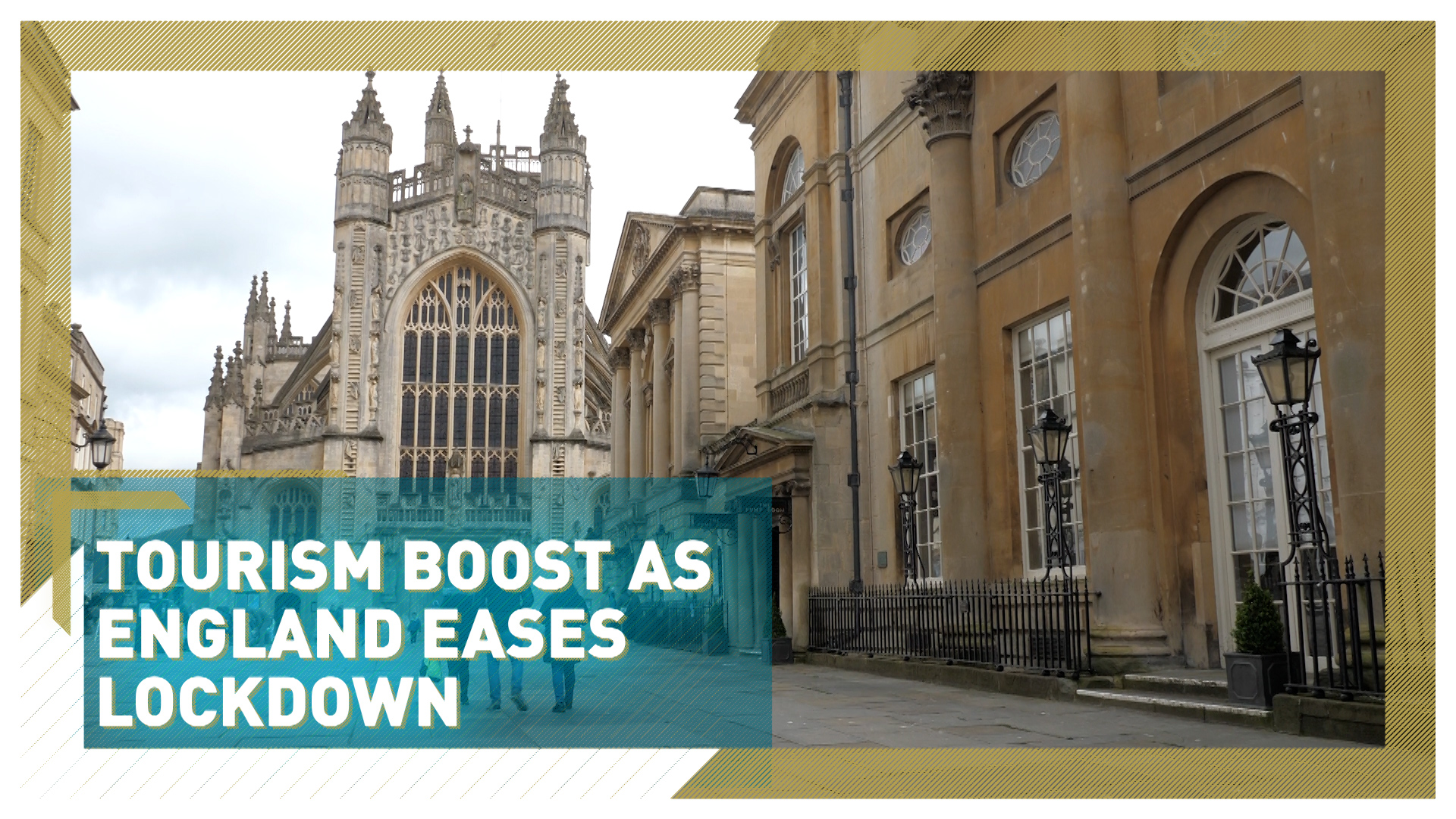02:38

After a long, hard winter, there's a ray of sunshine for the tourism industry.
Overnight stays in England are no longer prohibited and any self-contained accommodation can be opened to guests.
Within hours of opening their doors, caravan parks near the beach resort of Weston-super-Mare, in southwest England, were starting to fill up.
The Easter holidays in the city of Bath would normally mark the start of the tourist season, but things are still quiet.
As a tour guide, Nick Gane normally relies on visitors from Asia and America. Despite everything, he's optimistic and is pinning his hopes on the domestic market.
READ MORE:
Tributes to Prince Philip
Soccer clubs boycott social media
Brexit pricing researchers out of the UK

Overnight stays at self-contained accommodation are no longer prohibited, meaning caravan parks can reopen to the public. /CGTN
Overnight stays at self-contained accommodation are no longer prohibited, meaning caravan parks can reopen to the public. /CGTN
He told CGTN: "We have to be able to adapt, we have to be able to change quickly. We have to be able to work with what the market requires. And I think if restaurants, cafes, tour guides, any museum can do that, they stand a reasonable chance of being able to survive and be here for the next 10 years."
There are no definite answers yet on when foreign travel is allowed, or where English tourists will be able to go.
That makes domestic options very appealing, especially after a third national lockdown.
But on most holiday accommodation websites, there are very few options left for any popular tourist destinations. And what is available is almost certainly more expensive. Demand has driven up prices by an average of 35 percent compared with last year, according to one recent study.
But major indoor attractions are still closed and aren't allowed to reopen until May, according to government guidelines. As a result, there's likely to be a need for more support to keep other venues afloat.

Tourist attractions such as the Tower of London still face a loss of income because of a reduction in the number of tourists from abroad. /AFP
Tourist attractions such as the Tower of London still face a loss of income because of a reduction in the number of tourists from abroad. /AFP
Bernard Donoghue is the director of the Association Of Leading Visitor Attractions. He told CGTN Europe that some of the country's most famous venues are facing a dip in custom.
"If you're St Paul's Cathedral, or Westminster Abbey, or the Tower of London, for example, in a normal year, 90 percent of the people buying your tickets are from overseas. So there's a whole swathe of the visitor economy who will really feel the loss of inbound visitors this year.
"So I don't think that massive numbers of us Britons going to them will make up for that, so they're going to require additional support to see them through this year and to thrive and survive over the course of the next couple of years."
COVID-19 wardens will be a familiar site at tourist hotspots in England this year, checking businesses are complying with the rules and making sure visitors obey the guidance on social distancing.
What tourism businesses need now is a summer with no further COVID-19 restrictions and some good weather.

